How to contact Arundhati Roy? Suzanna Arundhati Roy Contact Address, Email ID, Website, Phone Number
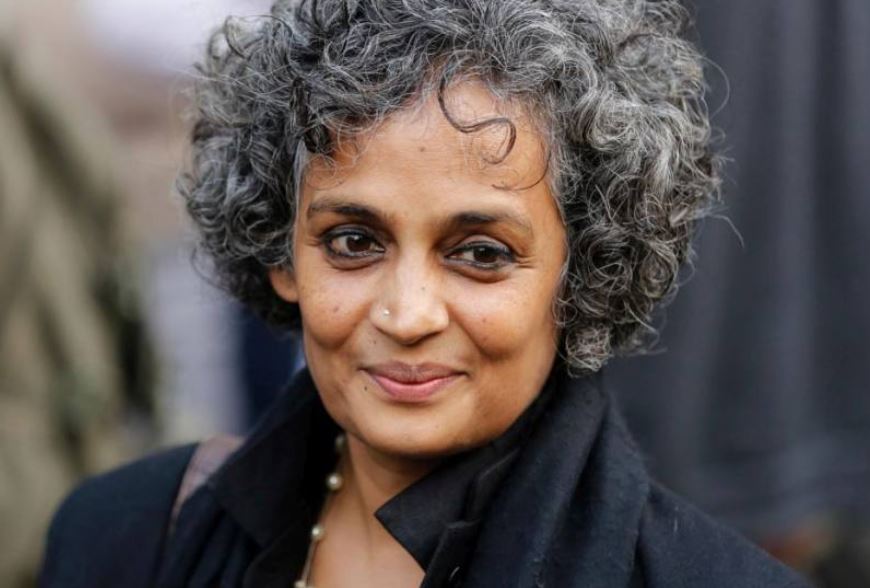
Hello friends! Are you a follower of Suzanna Arundhati Roy? Are you searching on google for How to contact Suzanna Arundhati Roy? What is the Whatsapp number, contact number or email id of Arundhati Roy? What is the hometown and residence address of Suzanna Arundhati Roy? What is the Facebook, Twitter, or Instagram id of Suzanna Arundhati Roy? Find out all these things in our article below…
Today I will tell you about HOW TO CONTACT SUZANNA ARUNDHATI ROY?
Suzanna Arundhati Roy is an Indian author best known for her novel The God of Small Things (1997), which won the 1997 Man Booker Prize for Fiction and became the best-selling book by a non-expatriate Indian author. She is also a democratic activist active in human rights and environmental issues.
Arundhati Roy Biography:
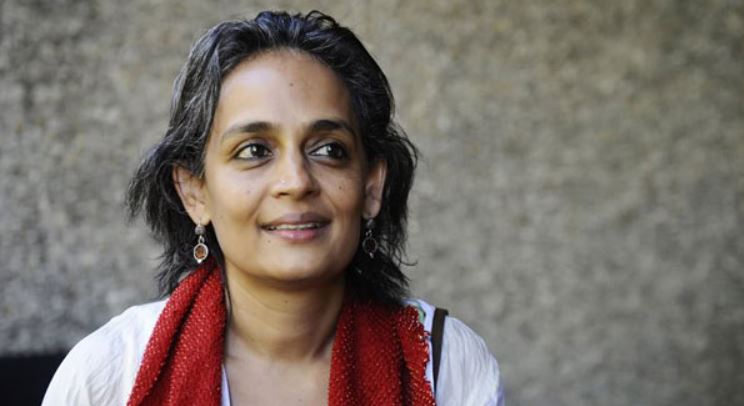
Arundhati Roy was born on 24 November 1961 in Shillong, Meghalaya, India, to Mary Roy, a Syrian Christian women’s rights activist in Malaya, Kerala, and Rajib Roy, a Bengali Hindu tea plantation manager in Calcutta. Her parents split when she was two, and she returned to Kerala with her mother and her uncle. For a time, the family had been living with Roy’s maternal grandfather in Ooty, Tamil Nadu. When she was five years old, the family moved back to Kerala, where her mother began school.
Roy attended school in Corpus Christi, Kottayam, followed by Lawrence College in Lovedale, Nilgiris, Tamil Nadu. She studied design at the School of Planning and Design, Delhi, where she met the architect Gerard da Cunha. The two of them were living together in Delhi, and then in Goa before they separated.
Roy returned to Delhi, where she won a position with the National Institute of Urban Affairs. In 1984, she met the independent filmmaker Pradip Krishen, who offered her a role as a goatherd in his award-winning film Massey Sahib. Later, the two were married. They collaborated on the Indian Independence Movement television series and on two films, Annie and Electric Moon. Roy, disenchanted with the world of film, did a variety of jobs, including running aerobics classes. Roy and Krishen had finally parted. With the success of her novel The God of Small Things, released in 1997, she became financially secure.
Roy is a cousin of prominent media personality, Prannoy Roy, head of Indian television media company NDTV. She’s staying in Delhi.
Career:
Early Career: screenplays
Roy worked for television and film early in her career. She wrote screenplays for In Which Annie Gives It Those Ones (1989), a film based on her experience as an architectural student, in which she also acted as a performer, and Electric Moon (1992). They were both guided by her husband, Pradip Krishen, during their marriage. Roy received the National Film Award for Best Screenplay in 1988, for which Annie offers the Best Screenplay.
She gained attention in 1994 when she attacked Shekhar Kapur’s film Bandit Queen, based on the life of Phoolan Devi. In her film review entitled “The Great Indian Rape Trick,” she challenged the right to “restore the rape of a living woman without her permission” and accused Kapur of manipulating Devi and of distorting both her life and her purpose.
The God of Small Things:
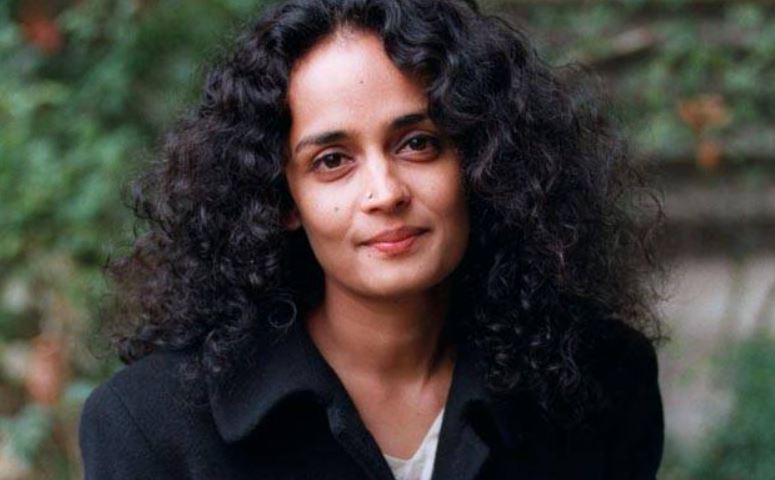
Roy started writing her first book, The God of Small Things, in 1992 and finished it in 1996. The book is semi-autobiographical, and much of it describes her childhood experiences in Aymanam.
Roy was catapulted to international fame by the publication of The God of Small Things. She won the 1997 Booker Prize for Fiction and was named one of The New York Times’ Notable Books of the Year. This was fourth on the New York Times Bestsellers List for Contemporary Fiction. From the outset, the book was also a financial success: Roy earned half a million pounds in advance. It was released in May and was distributed in 18 countries by the end of June.
The God of Small Things has received outstanding reviews in major American newspapers such as The New York Times (‘a brilliant first book,’ ‘extraordinary,’ ‘at once so morally strenuous and imaginatively flexible’) and the Los Angeles Times (‘a poignancy book and a great sweep’) and in Canadian publications such as the Toronto Star (‘a beautiful, magical novel’). It was one of the five best books in 1997 according to Time.
The critical reaction in the United Kingdom was less favorable and the award of the Booker Prize caused controversy; Carmen Callil, a judge of the 1996 Booker Prize, called the novel “execrable” and The Guardian called the context “profoundly depressive.” In India, the book was criticized in particular for its unregulated definition of sexuality by E. K. Nayanar, then Chief Minister of Roy’s home state of Kerala, where she had to face charges of obscenity.
Later Career:
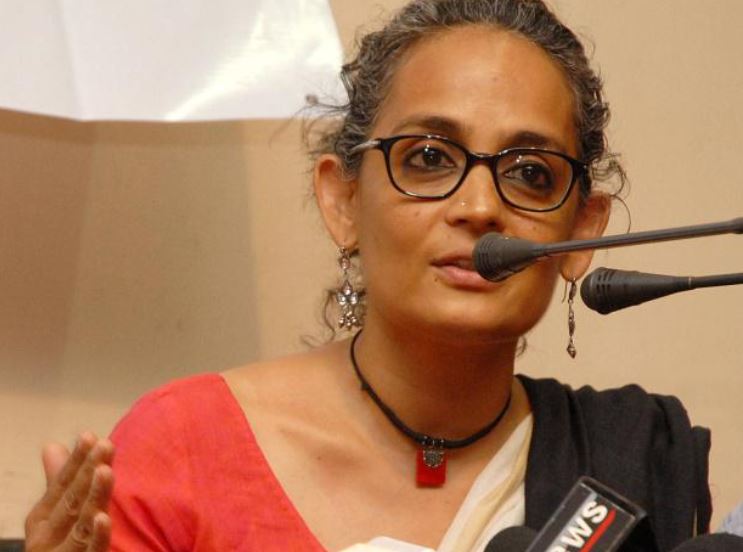
After the success of her book, Roy has written the TV series The Banyan Tree and the documentary DAM / AGE: A Movie with Arundhati Roy (2002). Roy said she was working on a second novel at the beginning of 2007.
She contributed to We Are One: A Celebration of Tribal Cultures, a book published in 2009 that discusses the history of people around the world, depicting their diversity and the challenge to their life. The royalties from the selling of this book go to the Human Rights Organization Survival International.
She has written numerous essays about contemporary politics and culture. They were published by Penguin India in a five-volume collection in 2014. Her nonfiction was compiled in a single book, My Seditious Soul, published by Haymarket Books in 2019
Penguin India and Hamish Hamilton UK announced in October 2016 that they would publish their second novel, The Ministry of Utmost Happiness, in June 2017. The book was nominated for the 2017 Man Booker Prize Long List. The Ministry of Utmost Happiness was nominated for the National Book Critics Circle Award for Fiction in January 2018.
Advocacy:
Since publishing The God of Small Things in 1997, Roy has spent most of his time working on political activism and non-fiction (such as a collection of essays on social causes). She is a spokesperson for the anti-globalization / alter-globalization movement and a vehement critic of neo-imperialism and U.S. foreign policy. This opposes India’s nuclear weapons policy as well as industrialization and economic growth (which it defines as “encrypted with genocidal potential” in Listening to Grasshoppers: Field Notes on Democracy).
She also challenged the behavior of the Indian police and administration in the case of the 2001 attack by the Indian Parliament, and the Batla House was presented with a case that argued that the country had a “shadowy past of suspected terror attacks, ambiguous inquiries, and false encounters.”
Support for Kashmiri separatism:
In an August 2008 interview with The Times of India, Roy expressed his support for the freedom of Kashmir from India following significant demonstrations in 2008 in favor of freedom — about 500,000 separatists protested for independence in Srinagar, Kashmir, Jammu and Kashmir, India, on 18 August 2008, following the Amarnath land transfer dispute. According to her, the rallies were a warning that Kashmiris wanted separation from India, not union with India. She was criticized by the Indian National Congress and the Bharatiya Janata Party for her remarks.
Satya Prakash Malaviya, a member of the Indian Congress Committee and leader of the Opposition, asked Roy to withdraw her “irresponsible” comment, saying it was “contrary to historical evidence.”
It would be easier to learn that the princely state of Jammu and Kashmir had entered the Union of India after its former king, Maharaja Hari Singh, had formally signed the Instrument of Accession on 26 October 1947. And, as a result, the state has been as much an integral part of India as all the other former princely states have.
She was charged with sedition along with Separatist Hurriyat leader Syed Ali Shah Geelani and others by the Delhi Police for their “Anti-India” speech at the 2010 Kashmir Convention: “Azadi: The Only Way.”
Sardar Sarovar Project:
Roy, along with activist Medha Patkar, campaigned against the Narmada Dam project, arguing that the dam would displace half a million people with little to no compensation and would not provide the requisite irrigation, drinking water, and other benefits. Roy donated her prize money to Narmada Bachao Andolan, as well as royalties from her project books. Roy is also featured in Franny Armstrong’s Drowned Out, a 2002 documentary on the project. Roy’s opposition to the Narmada Dam project was attacked as “maligning Gujarat” by Congressmen and BJP leaders in Gujarat
In 2002, Roy responded to a notice of contempt issued against her by the Supreme Court of India with an affidavit stating that the court had decided to initiate infringement proceedings on the basis of an unsubstantiated and incorrect petition, while refusing to investigate allegations of corruption in military contracts, pleading an overload of cases, indicated a “disquieting inclination” to silence criticism and dissent using the power of contempt.
The court found that Roy’s statement, which she refused to disavow or apologize for, constituted criminal contempt, sentenced her to one-day “symbolic” imprisonment, and fined her Rs. 2500. Roy completed the prison term and paid the fine instead of serving an extra three months by default.
Environmental historian Ramachandra Guha was critical of Roy’s Narmada Dam activism. Although acknowledging her “courage and commitment” to the cause, Guha argues that her activism is hyperbolic and self-indulgent, “Ms. Roy’s propensity to exaggerate and simplify, her Manichaean view of the universe, and her shrill hectoring tone, have given the environmental study a bad name.” He accused Roy of accusing the Supreme Court judges who had heard a petition brought by Narmada Bachao Andolan as reckless and irresponsible
Roy counters that her writing is deliberate in an emotional, hysteric tone: “I’m hysteric. I’m shouting from the bloody rooftops. And he and his arrogant little club are going, ‘Shhh… you’re going to wake up the neighbors!’ I want to wake up the neighbors, that’s my whole point. I want everybody to open their eyes.”
Gail Omvedt and Roy had vigorous and positive discussions in open letters on Roy’s plan for the Narmada Dam campaign. The activists are not in agreement as to whether to seek the full suspension of the dam-building (Roy) or the hunt for intermediate alternatives (Omvedt).
India’s nuclear weaponry:
In reaction to India’s nuclear weapons tests in Pokhran, Rajasthan, Roy wrote The End of Imagination (1998), questioning the Indian government’s nuclear policy. This was published in her book The Cost of Living (1999), in which she also collated with India’s major hydroelectric dam projects in the central and western states of Maharashtra, Madhya Pradesh, and Gujarat
Views on Narendra Modi
In 2013, Roy called Narendra Modi’s appointment as prime minister a “tragedy.” She said the business houses supported his candidacy because he was the “most militaristic and aggressive” candidate. She argued that Modi has a degree of unrecognized control over India by most people in the Western world: “He is the system. He has the support of the media. He has the support of the army, the courts, the majority popular vote … Every institution has fallen into line. “She expressed profound concern for the future, calling Modi’s long-term proposals for a highly authoritarian Hindu state” suicide “for a multicultural subcontinent.
Comments on NRC and NPR:
On 25 December 2019, while speaking at Delhi University, Roy urged people to deceive the authorities during the forthcoming listing of the National Population Register, which she said could act as a database for the National Registry of Citizens. The remarks have been criticized across the political divide. The case against her was registered at the Tilak Marg Police Station in Delhi under sections 295A, 504, 153, and 120B of the Indian Criminal Code. Later, she said that her remarks had been misinterpreted.
Awards:
Roy was awarded the 1997 Booker Prize for his novel The God of Small Things. The winner earned a bonus of approximately US$ 30,000 and a quote reading, “The book holds all the promises it makes.” Roy donated the prize money she won, as well as the royalties from her novel, to the cause of human rights. Prior to Booker, Roy received the National Film Award for Best Screenplay in 1989, for the screenplay of In Which Annie Gives It Those Ones, in which she described the anguish of students in educational institutions. In 2015, she returned the national award in protest against religious intolerance and growing violence by right-wing groups in India.
In 2002, she won the Lannan Foundation’s Cultural Freedom Award for her studies on “political systems that are negatively influenced by the most powerful governments and corporations in the world” to “celebrate her life and her ongoing work in the struggle for freedom, justice, and cultural diversity.”
In 2003, Bianca Jagger, Barbara Lee, and Kathy Kelly won “Special Honors” as Woman of Peace at the Global Exchange Human Rights Awards in San Francisco. In May 2004, Roy was awarded the Sydney Peace Prize for her work in social campaigns and her advocacy of non-violence.
In January 2006, she was awarded the Sahitya Akademi Prize, a national prize from the Indian Academy of Letters, for her collection of essays on contemporary issues, The Mathematics of Infinite Justice, but refused to accept it in protest against the US government’s violent and barbaric pursuit of policies of the brutalization of industrial workers, the militarization and economic neo-liberalization'”.
In November 2011, she received the Norman Mailer Award for Distinguished Literature. Roy was featured in the 2014 Time 100 ranking, the 100 most influential people in the world.
(a)Real Name: Suzanna Arundhati Roy
(b)Born: November 24, 1961, Shillong, Meghalaya, India
(c)Father: Rajib Roy(A tea plantation manager)
(d)Mother: Mary Roy(A women’s rights activist)
(e)Brother: Lalit Kumar Christopher Roy
(f)Marital Status: Divorced
(g)Spouse:
1. Gerard da Cunha(Architect)
2. Pradip Krishen(Independent Filmmaker)
(h)Children:
Daughter: Two
(i)Birth Sign: Sagittarius
(j)Religion: Hinduism
(k)Height: 5’4″
(l)Profession: Writer, Essayist, Activist, Screenwriter, Novelist
(m)Hobbies: Photography, Cycling, Reading, Writing, Travelling
(n)School:
1. Corpus Christi High School, Kottayam, Kerala, India
2. Lawrence School, Lovedale, Nilgiri, Tamil Nadu, India
(o)College/University: School of Planning and Architecture, Delhi, India
(p)Educational Qualification(s): A Degree in Architecture from the School of Planning and Architecture, Delhi
(q)Personal Twitter: @aroybot
(r)Email: Not Available
(s)Address: An apartment in a smart enclave near the Lodhi Gardens, New Delhi, India
(t)Telephone: Not Available
(u)Facebook: https://www.facebook.com/ArundhatiRoyAuthor/
(v)Instagram: https://www.instagram.com/explore/tags/arundhatiroy/?hl=en
See Also: Neha Kakkar Contact Address, Whatsapp Number, Phone Number, Email ID, Website
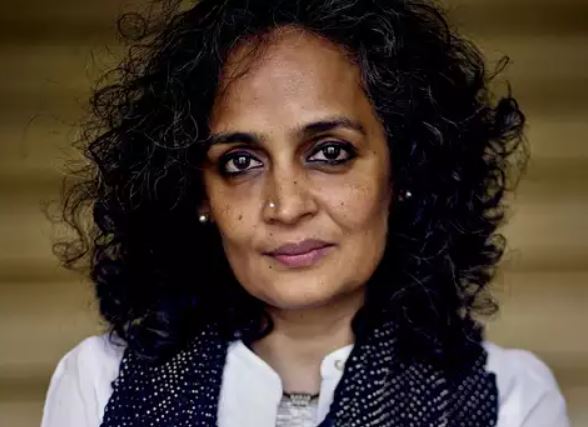
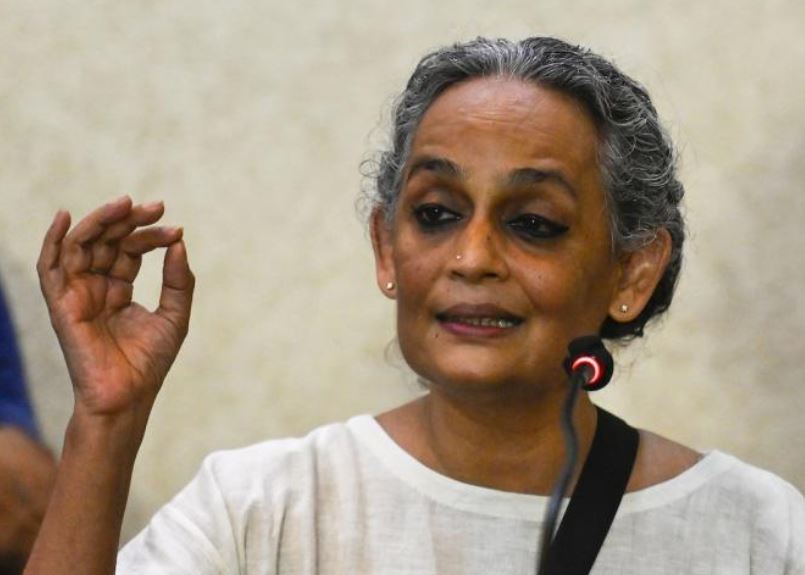
Suzanne Arundhati Roy is abs awesome, a fearless fighter of injustice with a heart of GOLD.
आपका वायर में आया हुआ अपयशी नव्हे; नरेंद्र मोदी गुन्हेगार ये लेख जनहितार्थ युज किया तो चलेगा क्या नहीं ?
I just wanted to congratulate Ms Roy on her request to the PM to step down to allow for an educated government.